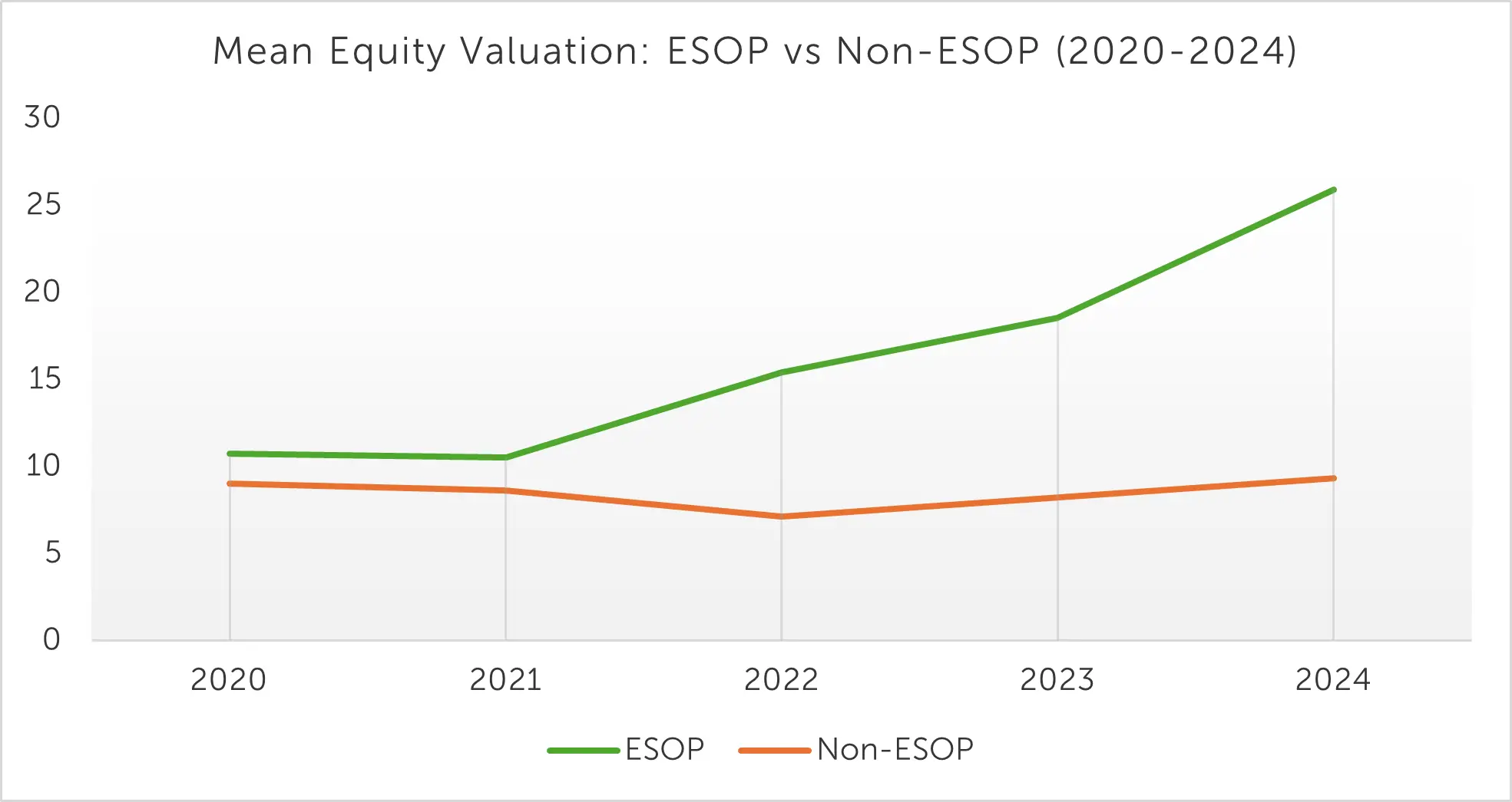Employee Ownership
Understanding ESOPs – Register to our FREE webinar!
Understanding ESOPs – Register to our FREE webinar!
Employee Ownership

In Australia, there are two taxing points for ESS – the deferred taxing point and the upfront taxing point. The deferred taxing point is the most common and occurs when you acquire shares or options and defer the taxing point until a later date. This date is generally when you either sell the shares or options, or they cease to be subject to a restriction. Importantly, under the legislation, this can be up to 15 years (the maximum period allowed).
The upfront taxing point, on the other hand, occurs when you acquire shares or options and the taxing point happens immediately. This means that you will be required to include the market value of the shares or options as part of your assessable income for the year in which you received them.
It’s important to note that the choice of taxing point for ESS can have a significant impact on your tax liability. Therefore, it’s advisable to seek professional advice before making any decisions relating to ESS and its tax implications.
In summary, understanding the taxing point for ESS is crucial for employees who participate in employee share schemes.
If you acquire Employee Share Schemes (ESS) interests at a discount and either the plan or your circumstances, do not meet the conditions for concessional treatment, the discount you receive is
assessable in the year you acquire the ESS interests.
The ESS interests are treated as if they were provided from an upfront scheme – not eligible for reduction.
Taxed-upfront scheme: Eligible for reduction – $1,000 tax exempt plans:
If you acquire ESS interests under these plans, you may be eligible to reduce the discount amount that must be included in your assessable income by up to $1,000. To be entitled to the concession, you will need to meet:
To qualify as an Employee Share Scheme using the start-up rules you (the business) need to meet some basic criteria:
The plan also needs to contain rules to ensure it meets the following criteria:
Provided you meet the criteria listed (both the employer and the plan rules) then the taxation treatment is quite generous:
If you acquire ESS interests under these plans, the tax on any discount you receive on your interests can be deferred until the income year in which the deferred taxing point occurs, provided the conditions are met.
The conditions are:
Some ESS plans include terms that create a risk that your ESS interests can be lost or forfeited. If you have acquired ESS interests under these schemes your interests are taxed in the income year the deferred taxing point occurs if:
In some circumstances you may not be able to defer tax even though you have participated in a tax-deferred plan. You need to consider your individual circumstances to determine whether your ESS interests are in fact at a real risk of forfeiture. As an example, if your employer allows only retiring employees to keep their interests when they cease employment, then there will be no risk that you will lose any interests that you acquire after the time you notify your employer of your retirement date.
If you acquire an ESS interest that is a right, the tax on the discount will be deferred until the deferred taxing point occurs if, at the time you acquired the right under the scheme:
Deferred taxing point
If you acquire ESS interests under a tax-deferred scheme, you will be assessed in the year the deferred taxing point occurs. The amount assessed will be the market value of the ESS interests at the deferred taxing point, reduced by the cost base of the ESS interests.
Shares
The deferred taxing point for a share or stapled security is the earliest of the
following:
Rights
The deferred taxing point for a right is the earliest of the following:
The Peak Performance Trust has previously been the subject of Private Binding Rulings from the Australian Taxation Office, these rulings confirm the tax advice for the Peak Performance Trust structure, is summarised below:
1. Employer Company – ATO Ruling Authorisation Number: 1051314640866
a. Contributions paid by the employer company to the Peak Performance Trust will be tax-deductible.
b. Contributions paid by the employer company will not constitute a fringe benefit.
c. Anti-avoidance provisions will not apply to the scheme
2. The Trustee for the Peak Performance Trust – ATO Ruling Authorisation
a. Amounts contributed to the trustee by Employees will not constitute assessable income of the PPT.
b. Amounts contributed by the employer company to the Peak Performance Trust will not constitute assessable income of the PPT.
c. Anti-avoidance provisions will not apply to the scheme.
3. A typical Employee – ATO Ruling Authorisation Number: 1051323914120
a. Division 83A will apply to the acquisition of Units by the Employee, when the Employee does not pay anything to acquire Units (meaning that the scheme is a qualifying Employee share scheme, where the interest has been acquired at a discount).
b. Division 83A–C will apply to the acquisition of Units by the Employee, when the Employee does not pay anything to acquire Units (meaning that the income year in which the Shares are subject to taxation is deferred).
c. Income tax deferral will be triggered at the earliest of:
(i) the Employee exiting employment
(ii) The company or business being sold
(iii) 15 years.
d. The amount that will be included in assessable income of the Employee at the deferred taxing point will be the market value of the share referable to each unit at that time.
e. The Employee is entitled to own Units through an associate (for example a family trust).
f. The Employee redemption amount will constitute assessable income of the Employee, even if he participates indirectly through associate.
g. Contributions made by the Employee to acquire additional Units in the PPT will not constitute assessable income of the Employee.
h. The Employee will not be liable for capital gains tax on any capital gains made upon the redemption of ordinary Units unless the redemption occurs after the first taxing point.
i. Where the Employee has paid market value for the acquisition of additional Units, he will be liable for capital gains tax on any capital gains made upon the redemption of the Units.
There are tax consequences in participating in the PPT and we recommend that you seek independent taxation advice. We also strongly recommend that you speak to your accountant or tax adviser about any amounts you have received as these will need to be included on your individual tax return.
Want to discuss how Employee Share Plans could benefit your business? Talk to our advisers today.

Dr Craig West
 1 min read
1 min read
Oct 29, 2025 | Employee Ownership Business Value Acceleration
The Value of Ownership: ESOP Companies Achieve Strong Equity Growth
.webp) 2 min read
2 min read
Sep 26, 2025 | Employee Ownership Business Value Acceleration
OwnerShift+™: Build Culture & Accelerate Business Value
 3 min read
3 min read
Sep 8, 2025 | Employee Ownership Succession Planning Business Value Acceleration
The 3x3 Framework | Business Growth & Succession Insights
 3 min read
3 min read
Aug 25, 2025 | Employee Ownership Business Value Acceleration
Smart ESOP Strategies Before Selling Your Busines